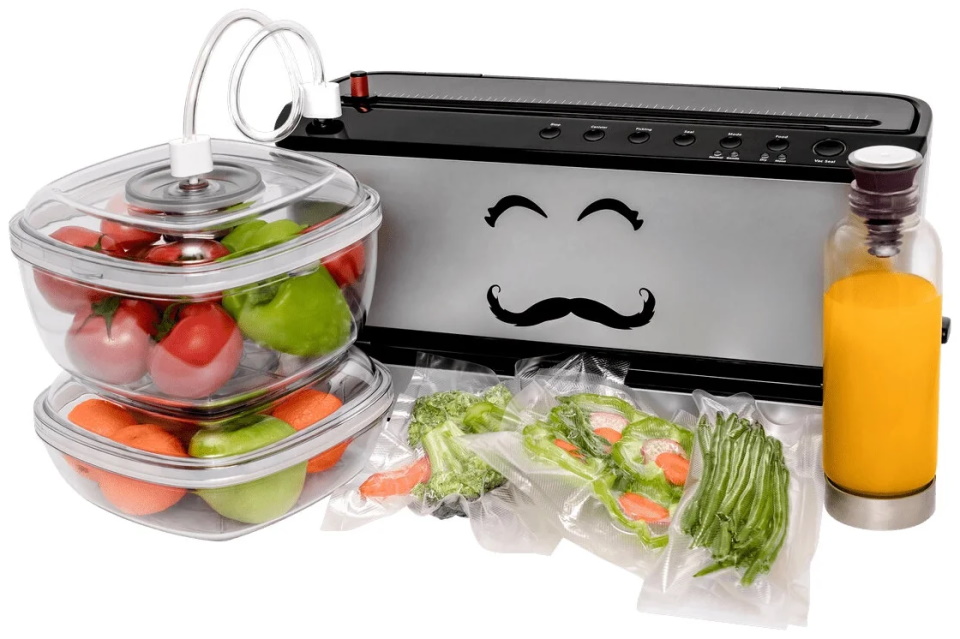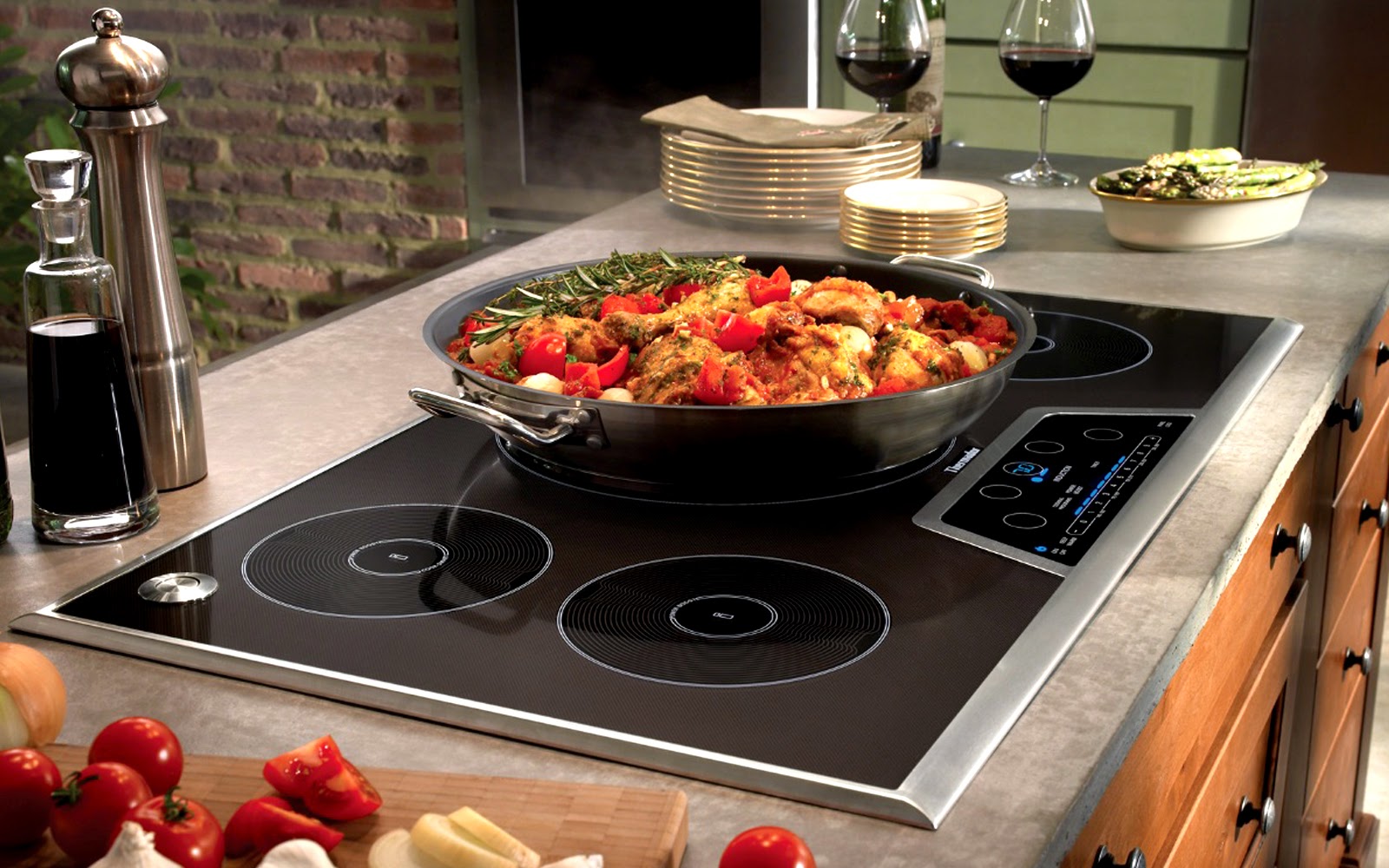Rating of the best batteries for screwdrivers in 2022
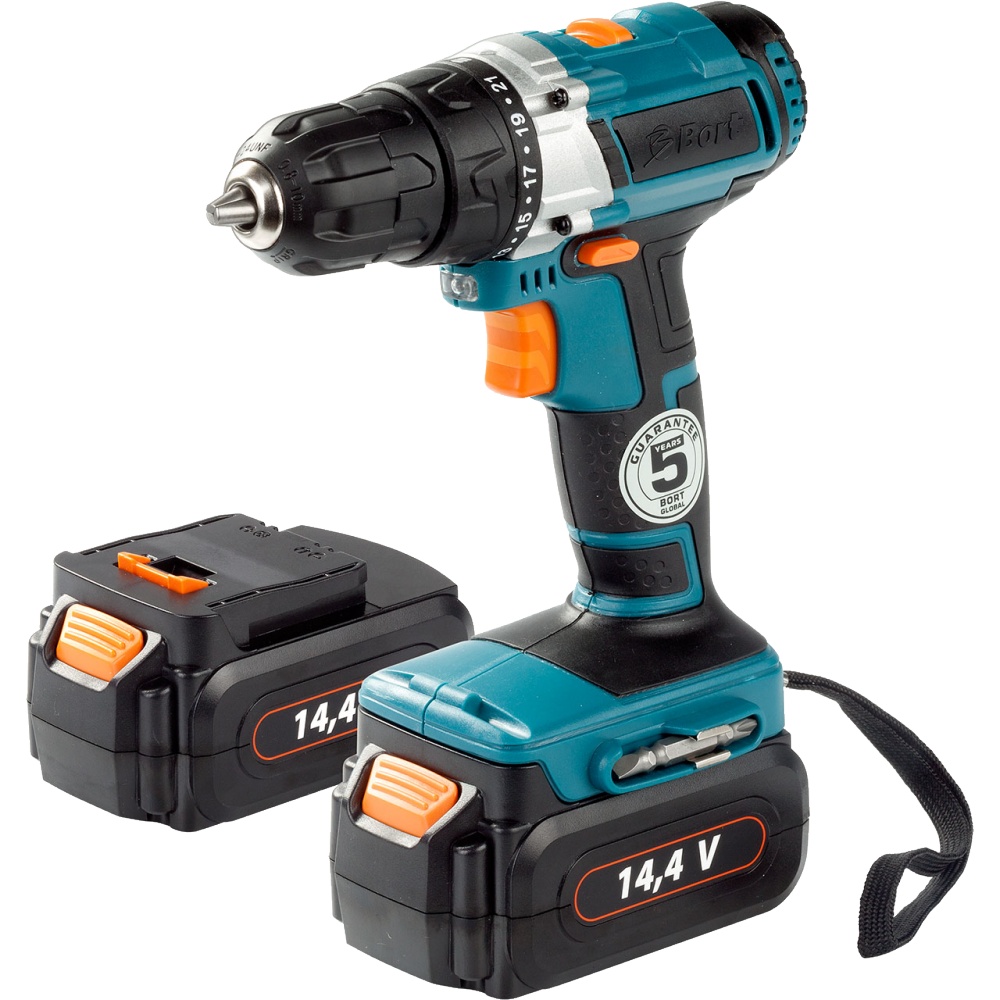
A battery (battery) is a device that accumulates, stores and consumes energy. The reversible chemical processes occurring inside it allow you to charge and discharge the battery repeatedly.
Batteries have penetrated into all areas of our lives: from children's toys and household power tools to the automotive industry and the space industry. Such a wide application gave rise to their diversity. In this article, we will consider the best batteries for screwdrivers.
Content
Types of batteries for screwdrivers
The variety of rechargeable batteries is due to the fact that various chemical elements can be used as electrodes and electrolytes. The quality of the power tool used depends on the correct choice of energy storage device. The most widespread in the field of electrical appliances are the following 4 types:
- nickel-cadmium (Ni-Cd);
- nickel metal hydride (Ni-MH);
- lithium-ion (Li-Ion);
- lithium polymer (Li-Pol).
Let's take a closer look at each of them.
Nickel-cadmium batteries
Despite the fact that this species appeared at the end of the 20th century, their mass production began only in the middle of the next century. They use nickel as the positive electrode and cadmium as the negative electrode. Most often they have the shape of a cylinder, for which they received the common name "banks".
Nickel-cadmium batteries used for screwdrivers have a number of advantages:
- can be operated at low temperatures without much loss of charge, which is a huge plus when working outdoors in winter;
- up to 1000 charge-discharge cycles;
- there is no risk of spontaneous combustion;
- high load capacity;
- can be in a discharged state for a long time without losing their properties;
- the ability to restore failed batteries;
- can be used until fully discharged.
Despite the existing advantages, Ni-Cd batteries have some disadvantages:
- toxicity of substances filling the "jar";
- complex disposal of used devices;
- big weight;
- self-discharge of the battery, which reduces the capacity and voltage;
- memory effect that occurs when the battery is not completely discharged and further reduces its capacity.
It should be noted that nickel-cadmium batteries are recommended to be stored in a fully discharged state.
Nickel-metal hydride batteries
The beginning of the creation of this type of elements dates back to 1970. However, the unstable operation of the first samples necessitated the search for new metal hydride alloys. It wasn't until after the 80s that Ni-MH batteries were improved. The new type of battery has the following advantages:
- they practically do not have a memory effect;
- no toxic components are used in their production;
- ease of disposal;
- 30% more capacity than nickel-cadmium;
- light and compact;
- are not afraid of mechanical damage.
Minuses:
- take a long time to charge;
- 500-600 charge-discharge cycles;
- after 300 cycles, a decrease in capacity can be observed;
- cannot be operated at negative temperatures;
- cannot be completely discharged;
- higher cost compared to the previous type.
Store Nickel-Metal Hydride batteries half-charged and in a cool place.
Li-ion batteries
Li-Ion batteries appeared in the 90s thanks to Sony. The first elements of this type were characterized by increased explosiveness. Only 20 years later they got rid of this problem. Currently, this is a battery with high performance and a number of advantages over the previous ones:
- short charging period;
- there is practically no memory effect;
- minimum self-discharge;
- capacity does not decrease when charging an incompletely discharged battery;
- the absence of toxic components in the composition;
- long service life.
Despite the apparent advantages of lithium-ion batteries, there are some disadvantages:
- do not cause mechanical damage, tk. there is a possibility of an explosion on impact;
- quickly fail with strong discharge;
- are not subject to restoration measures;
- quickly discharged at sub-zero temperatures.
Lithium polymer batteries
This type of battery was developed on the basis of lithium-ion. The difference is that the liquid electrolyte has been replaced with a gel-like polymer. This, first of all, increased the safety of using these elements. In addition, the capacity has increased, while the weight and dimensions, on the contrary, have decreased. So the pros:
- no memory effect;
- practically no self-discharge;
- have a higher capacity than Li-Ion;
- can be very thin (up to 1 mm) and of various shapes;
- can be used in temperature conditions from -20 to +40 Celsius.
Disadvantages of Li-Pol batteries:
- service life - no more than 3 years;
- expensive;
- cannot be completely discharged;
- many nuances of operation and charging.
For screwdrivers, this type of battery is rarely used, due to their high cost.
It is difficult to say unequivocally which battery is better for screwdrivers. Each type of battery has its own advantages and can be used in different conditions. For rare use in everyday life, nickel-cadmium batteries are more suitable, which can be stored for a long time without loss of properties. In addition, they can be used outdoors at low temperatures. If a screwdriver is used often and for a long time, then it is better to give preference to lithium-ion batteries. They are more capacious, there is no self-discharge and quickly become infected.
Thus, the choice of a battery for a screwdriver should take into account the features and operating conditions, as well as the tasks that are set for the power tool.
Below are the best, according to users, batteries for screwdrivers of the most popular companies: Bosch, Hitachi, Makita.
Batteries compatible with Bosch screwdrivers
Hammer AKB1215
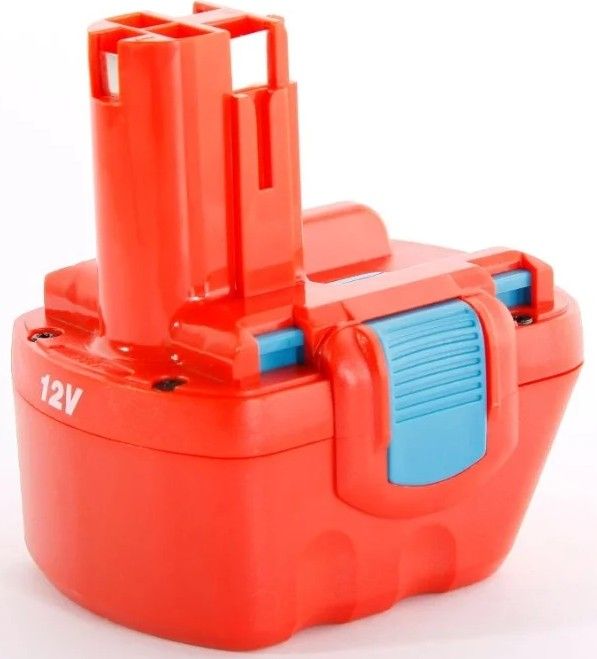
Nickel-cadmium battery pack is made in the form of a clip. Voltage - 12 V, capacity - 1.5 Ah.
Average cost: 1960 rubles.
- the ability to use at low temperatures;
- optimal price-quality ratio.
- memory effect, which obliges to charge the battery only completely discharged;
- no charge level indicator.
Charge NKB 1220 BSh-A 6117108
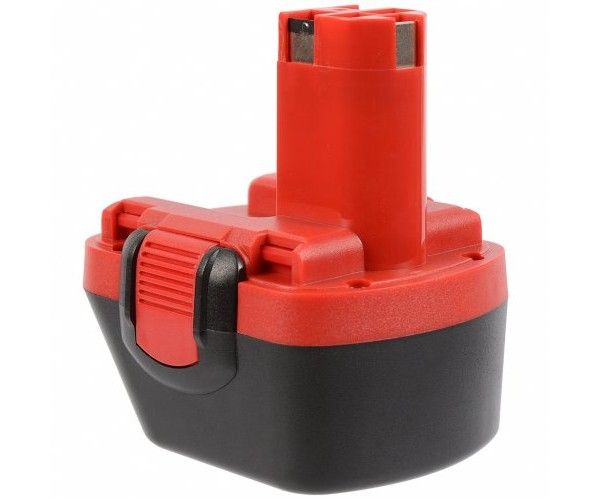
The battery consists of 10 nickel-cadmium cylindrical cells HYCPSC2000N. They are combined into a single block, made in the form of a clip. Voltage - 12 V, capacity - 2 Ah.
Average cost: 1530 rubles.
- operation is allowed in a wide temperature range from -20 to 65°С;
- inexpensive.
- there is a self-discharge of the battery.
Practice (031-631) 12V, 1.5 Ah
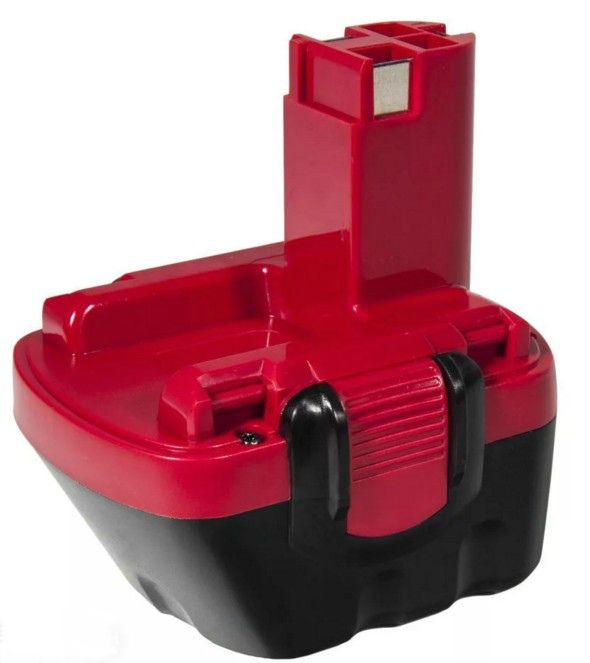
Nickel-cadmium battery for Bosch screwdrivers. Made in the form of a clip. Approximate charging time is up to one and a half hours. Capacity - 1.5 Ah, voltage - 12 V. Manufacturer - China.
Average cost: 1690 rubles.
- collapsible;
- fast charging;
- it is possible to replace faulty "banks".
- gradual decrease in capacity.
Hammer AKB1813Li

The slide-shaped lithium-ion battery is designed to replace the original batteries in Bosch screwdrivers and drills. Voltage - 18 V, capacity - 1.3 Ah.
Average cost: 2450 rubles.
- short charging time;
- there is practically no decrease in capacity over time;
- light weight.
- can not be used at low temperatures;
- no charge level indicator.
Bosch 1600A012UV
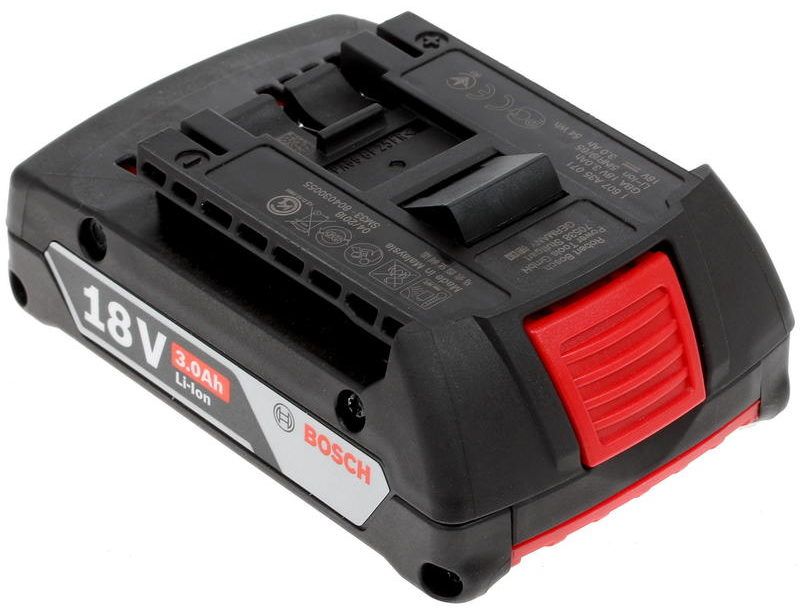
Lithium-ion battery with a capacity of 3 Ah, made in the form of a slider. The operating time is increased by half in comparison with similar models. A distinctive feature is a very durable case, which is not afraid of falling even on concrete.
Average cost: 4370 rubles.
- no memory effect;
- can be stored for a long time without loss of charge;
- There is a charge level indicator.
- afraid of sub-zero temperatures.
Pitatel TSB-048-BOS12A-33M
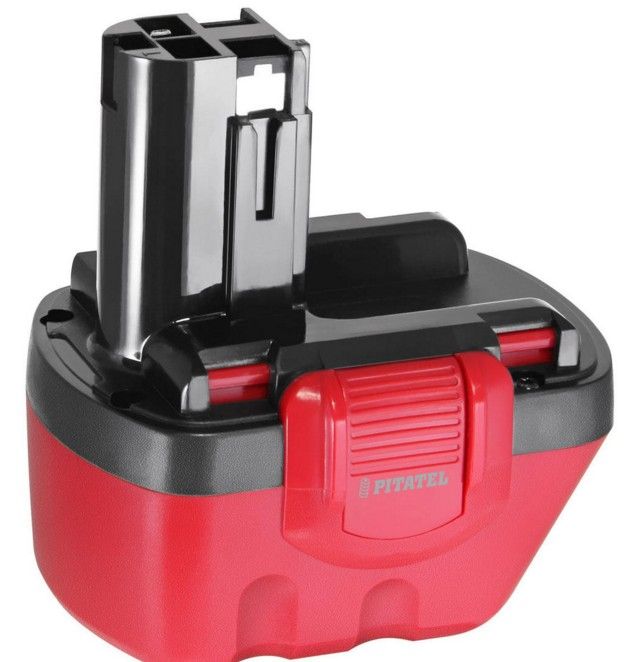
Nickel-metal hydride battery with a capacity of 3.3 Ah. This capacity allows you to perform a large amount of work without recharging.
Average cost: 2490 rubles.
- can be used at low temperatures;
- non-toxic;
- housing made of durable plastic.
- needs to be recharged for long periods of storage.
Bosch 2607335686
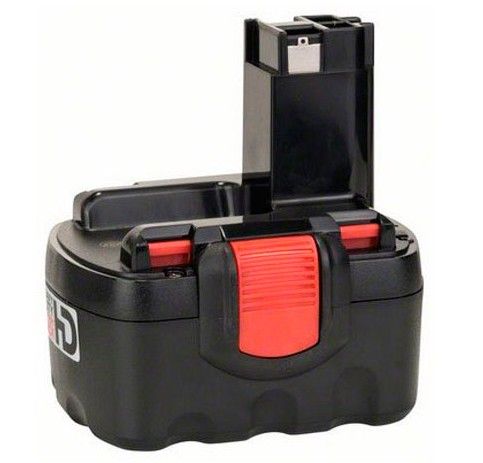
Professional nickel-metal hydride battery. Capacity - 2.6 Ah, voltage - 14 V.
Average cost: 9690 rubles.
- no memory effect;
- can be used at low temperatures;
- long service life (up to 1500 charge cycles).
- expensive.
Comparison of battery specifications for Bosch
| Battery name | Type of | Capacity (Ah) | Voltage (V) | Weight (g) |
|---|---|---|---|---|
| Hammer AKB1215 | Ni-Cd | 1,5 | 12 | 600 |
| Charge NKB 1220 BSh-A 6117108 | Ni-Cd | 2 | 12 | 690 |
| Practice 031-631 | Ni-Cd | 1,5 | 12 | 600 |
| Hammer AKB1813 | Li-Ion | 1,3 | 18 | 362 |
| Bosch 1600A012UV | Li-Ion | 3 | 18 | 450 |
| PITATEL TSB-048-BOS12A-33M | Ni-Mh | 3,3 | 12 | 726 |
| Bosch 2607335686 | Ni-Mh | 2,6 | 14 | 850 |
Batteries compatible with Hitachi screwdrivers
Charge NKB 1220 HT-A
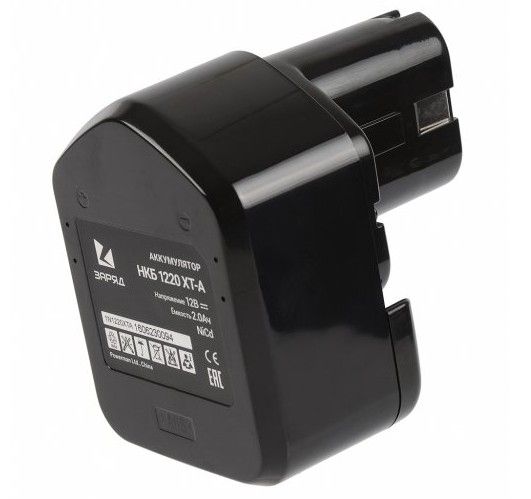
Nickel-cadmium battery with a capacity of 2 Ah and a voltage of 12 V. Consists of 10 cylindrical cells HYCPSC2000N, size - SC. Hitachi battery chargers are suitable for charging. Has the appearance of a clip.
Average cost: 1800 rubles.
- long service life;
- can be used at low temperatures.
- self-discharge is present.
Practice 031-679
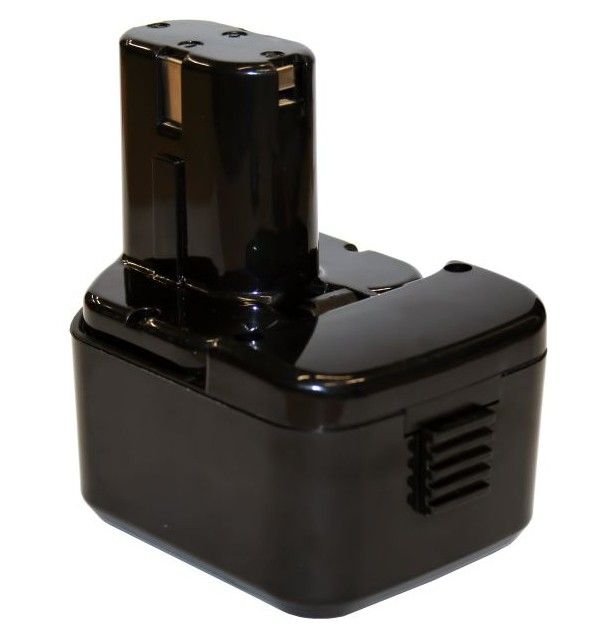
Nickel-cadmium battery for Hitachi tools. Voltage - 12 V, capacity - 1.5 Ah. Charging time - no more than 90 minutes.
Average cost: 1690 rubles.
- holds a charge for a long time.
- decrease in capacity over time;
- brittle plastic case.
Pitatel TSB-026-HIT14B-40L
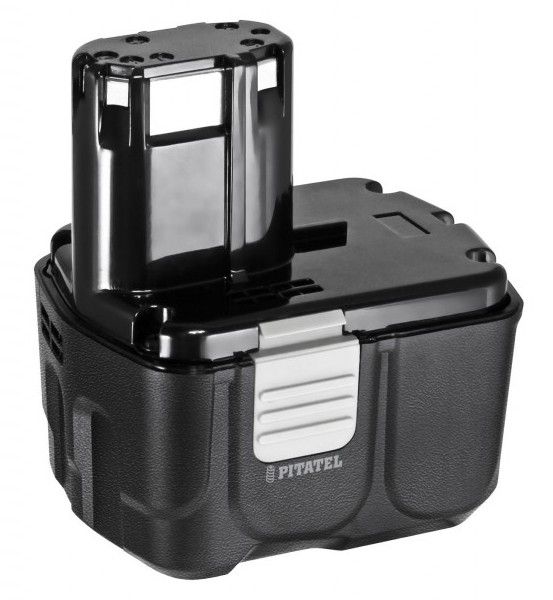
3Ah 14.4V Li-Ion battery pack. Perfectly replaces the original Hitachi battery and has the same performance.
Average cost: 3490 rubles.
- no capacity reduction;
- if used correctly, they can last a long time.
- can not be used at sub-zero temperatures.
Pitatel TSB-149-HIT18D-15L
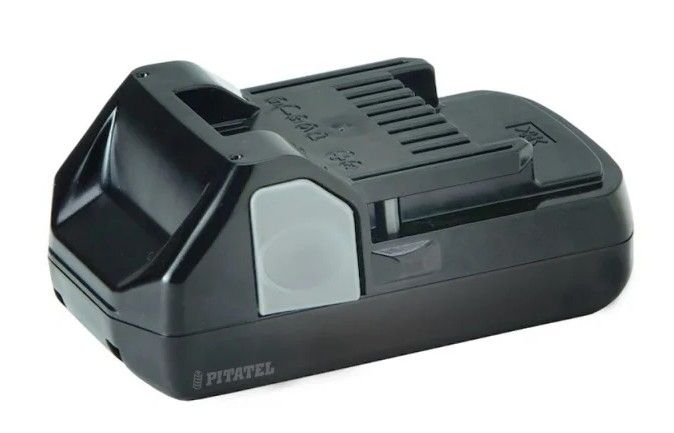
Lithium-ion battery in the form of a slider with a capacity of 1.5 Ah. Voltage - 18 V.
Average cost: 2230 rubles.
- fast charging;
- virtually no memory effect.
- afraid of strong blows and mechanical damage.
Hitachi EB1233X
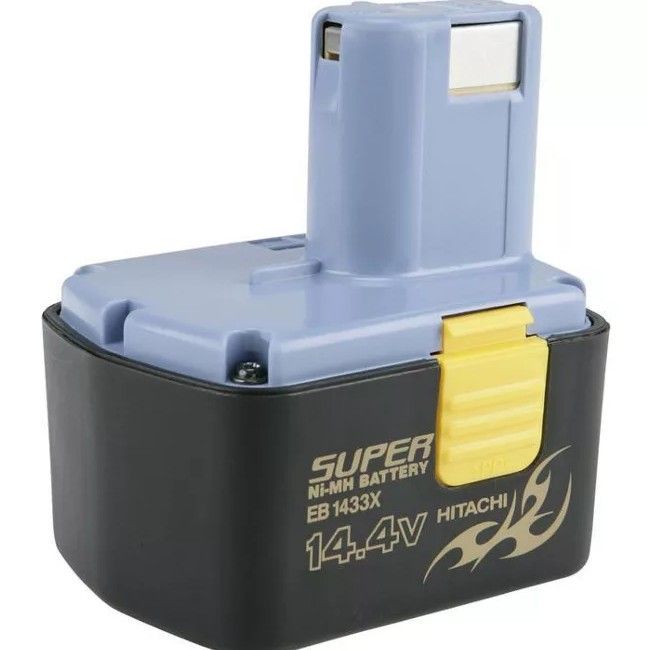
Nickel-metal hydride battery pack with a capacity of 3.3 Ah. This battery capacity increases the time of using tools without recharging at times in comparison with other types of batteries. This model belongs to the professional series.
Average cost: 6880 rubles.
- charge time - no more than 90 minutes;
- low memory effect;
- durable case;
- secure grip on the tool.
- not found.
TopOn TOP-PTGD-HIT-12-3.3
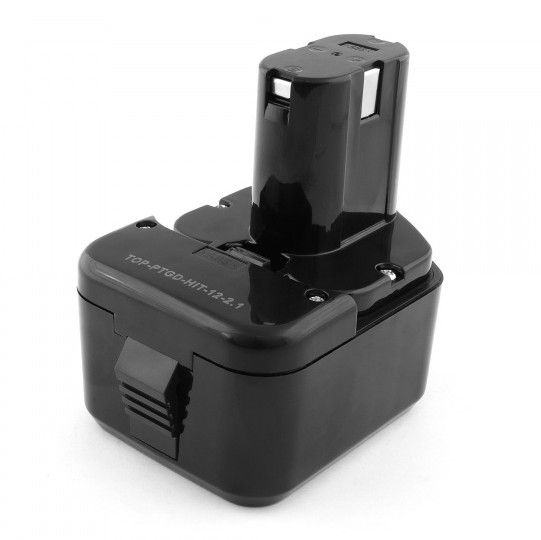
Nickel-metal hydride battery for Hitachi screwdrivers. Large capacity (3 Ah) ensures long and trouble-free operation of the power tool.
Average cost: 2190 rubles.
- Equipped with overload and overheating protection system;
- long service life.
- gradual decrease in capacity;
- use at temperatures below zero is not recommended.
Comparison of battery specifications for Hitachi
| Battery name | Type of | Capacity (Ah) | Voltage (V) | Weight (g) |
|---|---|---|---|---|
| Charge NKB 1220 HT-A | Ni-Cd | 2 | 12 | 690 |
| PRACTICE 031-679 | Ni-Cd | 1,5 | 12 | 610 |
| PITATEL TSB-026-HIT14B-40L | Li-Ion | 3 | 14,4 | 592 |
| Pitatel TSB-149-HIT18D-15L | Li-Ion | 1,5 | 18 | 499 |
| Hitachi EB1233X | Ni-Mh | 3,3 | 12 | 1600 |
| TopOn TOP-PTGD-HIT-12-3.3 | Ni-Mh | 3 | 12 |
Batteries compatible with Makita screwdrivers
Charge NCB 1415 MK-A
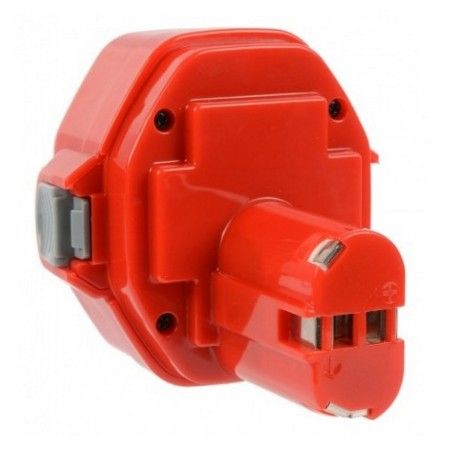
Nickel-cadmium battery with a capacity of 1.5 Ah. Consisting of 12 HYCPSC1500N size SC elements. The design of the battery in the form of a clip provides a reliable grip and continuous electrical contact with the tool.
Average cost: 1550 rubles.
- you can disassemble and change individual elements;
- holds a charge well.
- memory effect;
- self-discharge is present.
Makita PA12 (193981-6)
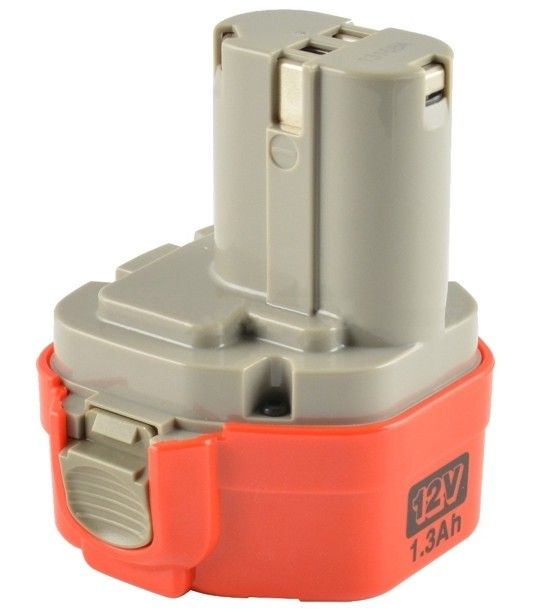
Nickel-cadmium battery for Makita screwdrivers. Capacity - 1.3 Ah, voltage - 12 V. Cubic battery.
Average cost: 1990 rubles.
- does not heat up when charging with high currents;
- can be used at temperatures up to -20°C;
- service life up to 2000 charge-discharge cycles.
- memory effect;
- self-discharge 10%.
Makita BL1830
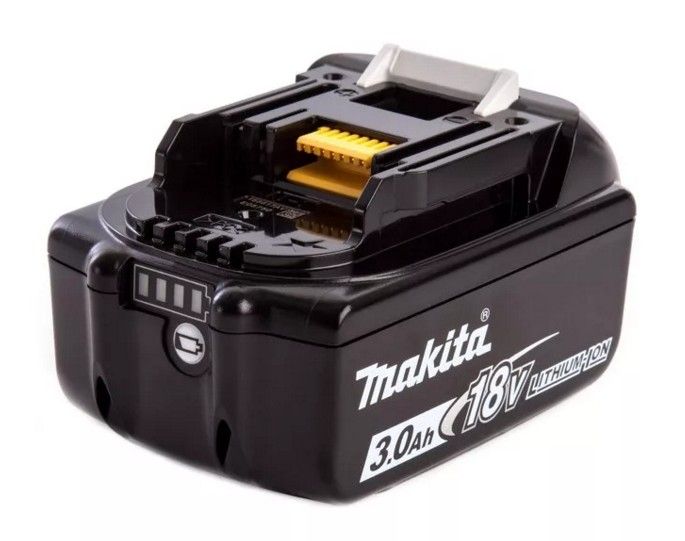
Lithium-ion battery in the form of a slider. The multi-pin mount ensures smooth operation of Makita's powerful screwdrivers. Large capacity (3 Ah) allows you to perform a large amount of work without frequent recharging.
Average cost: 3850 rubles.
- no memory effect;
- fast charging;
- practically no self-discharge.
- cannot be used at low temperatures.
Makita BL1860B
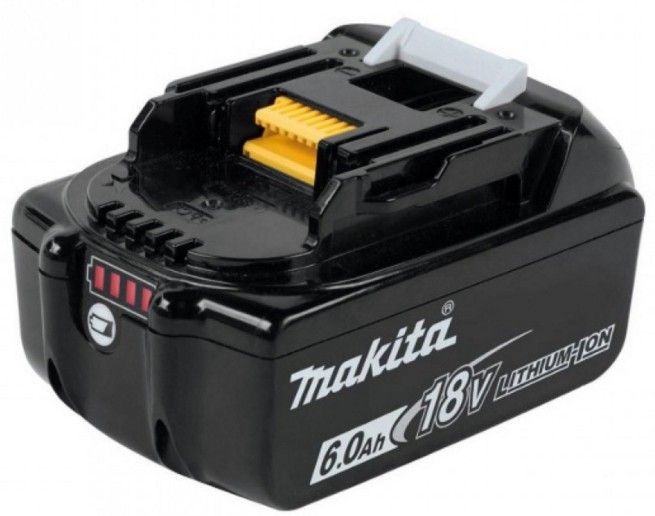
High-capacity lithium-ion battery (6 Ah) for powerful power tools. 16 pins provide a reliable and continuous electrical connection to the tool. The impact-resistant housing protects the battery from mechanical damage.
- there is a charge indicator;
- built-in protection against overheating and excessive discharge;
- short charging time (60 min);
- can be operated at temperatures down to -20°C.
- not found.
Makita 193101-2 1434
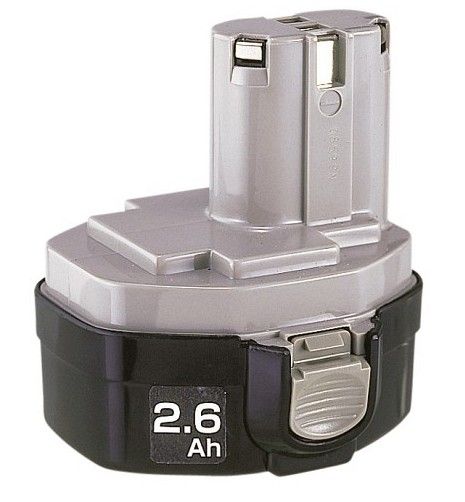
Compact nickel-metal hydride battery with excellent technical and operational characteristics. Capacity - 2.5 Ah, voltage - 14.4 V, charging time - from 10 to 90 minutes.
Average cost: 5890 rubles.
- can be used at temperatures up to -40°C;
- no memory effect;
- service life up to 2000 charge cycles.
- not found.
Sino Power 100157298V
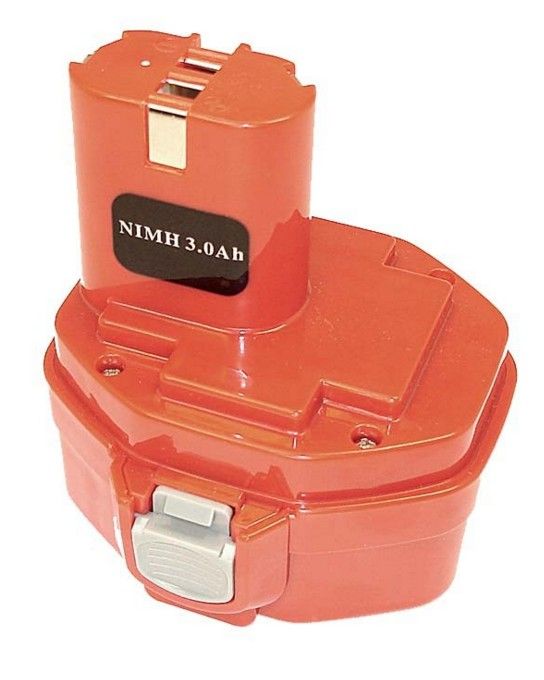
Reinforced nickel-metal hydride battery for Makita power tools. Capacity - 3 Ah, voltage - 14.4 V.
The average cost is 2690 rubles.
- large capacity, which increases the period of work without recharging;
- non-toxic, no problems with disposal;
- no memory effect.
- production: China.
Comparison of battery specifications for Makita
| Battery name | Type of | Capacity (Ah) | Voltage (V) | Weight (g) |
|---|---|---|---|---|
| Charge NCB 1415 MK-A | Ni-Cd | 1,5 | 14,4 | 730 |
| Makita PA12 (193981-6) | Ni-Cd | 1,3 | 12 | 668 |
| Makita BL1830 | Li-Ion | 3 | 18 | 496 |
| MAKITA BL1860B | Li-Ion | 6 | 18 | 496 |
| Makita 193101-2 | Ni-Mh | 2,5 | 14,4 | 670 |
| Sino Power 100157298V | Ni-Mh | 3 | 14,4 |
Conclusion
We reviewed the most popular battery models that are compatible with Bosch, Hitachi and Makita screwdrivers. As can be seen from the descriptions, each of them has a number of advantages: large capacity, long service life, short recharging time, the ability to work in a wide temperature range, etc. However, these advantages are rarely combined in one model. Depending on the chemical elements used as electrodes, these differences arise.
When choosing a battery, it is important to decide in what conditions the tool will be used (in the house or on the street), how often it will be needed. Not every battery can withstand prolonged inactivity without losing its properties. After all, it is precisely from improperly selected working conditions, charging and storage modes that many dissatisfaction arises, which are in no way connected with the quality of the battery. By following all the battery operating instructions provided by the manufacturer, you will not only extend its service life, but also increase the level of comfort when working with the tool.
Attention! The above information is not a buying guide. For any advice, you should contact the experts!
new entries
Categories
Useful
Popular Articles
-

Top ranking of the best and cheapest scooters up to 50cc in 2022
Views: 131651 -

Rating of the best soundproofing materials for an apartment in 2022
Views: 127691 -

Rating of cheap analogues of expensive medicines for flu and colds for 2022
Views: 124519 -

The best men's sneakers in 2022
Views: 124033 -

The Best Complex Vitamins in 2022
Views: 121940 -

Top ranking of the best smartwatches 2022 - price-quality ratio
Views: 114980 -

The best paint for gray hair - top rating 2022
Views: 113395 -

Ranking of the best wood paints for interior work in 2022
Views: 110319 -

Rating of the best spinning reels in 2022
Views: 105329 -

Ranking of the best sex dolls for men for 2022
Views: 104366 -

Ranking of the best action cameras from China in 2022
Views: 102216 -

The most effective calcium preparations for adults and children in 2022
Views: 102011





